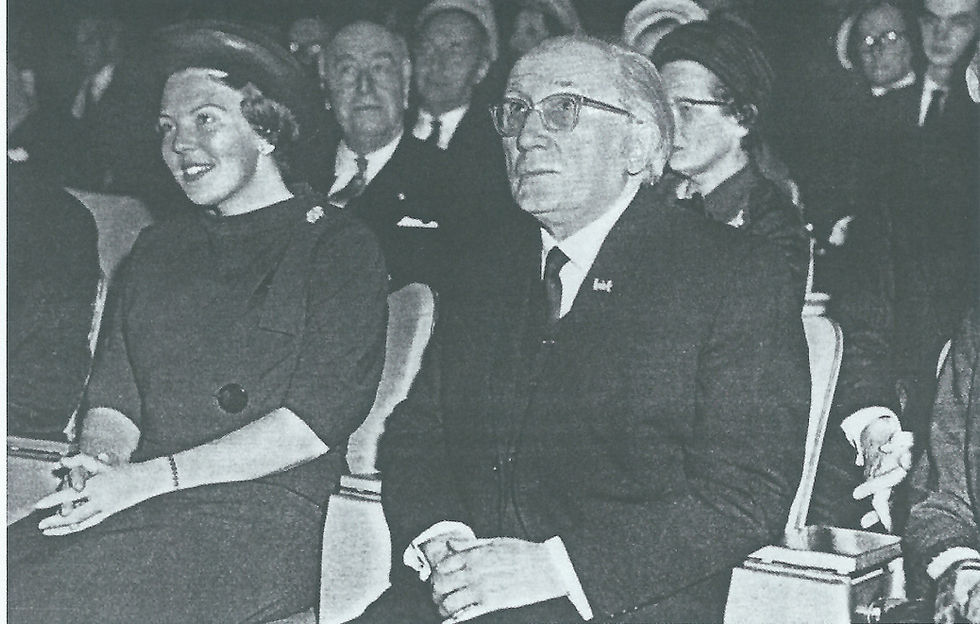Practical Atheism and the Call to Holiness
- Robert Mixa
- May 18, 2021
- 3 min read
A quick glance at the cultural landscape and its receptiveness to the Gospel might make the evangelist a tad resigned. Given that the predominant cultural institutions are out of the hands of professed Christians, there’s not much Christians can do to change the cultural trajectory of the late modern world. That may sound bleak and pessimistic, but it is better than being stuck in an illusion about the world we inhabit. Proclamation of the Gospel is always an imperative, but we should not be surprised if, like St. Paul on the Areopagus, we seem to only have a handful of receptive listeners.
Part of the reason for this difficulty in receiving the Gospel is that popular conceptions about reality and “common sense” don’t jive with many Catholic beliefs about reality. Secularism as practical atheism has conspired to make belief in the incarnate God appear nonsensical. Secularism and its form of Mammon, with its new devices (anything with a screen), are the idols of our age, and they happen to be quite heavy and hard to knock down. Most likely, they will be with us for a long time, and we will have to undergo whatever fate they set in motion. That’s why perseverance is a particular virtue Catholics need to cultivate, because no matter the quality of our catechesis, apologetics, or preaching, we should expect to not get much of a hearing. Fidelity matters more than success. Even if we do get an audience, we should expect people to equate Christianity with a private hobby. For about five hundred years this has been the case since Christians of various kinds have been under the mantle of secular authority—in part because of the reduction of faith to private belief. And, barring direct divine intervention, this is not likely to change in the near future.
Practical atheism affects all of us, believers included. If we are not careful, we too can compartmentalize our relationship with God, thinking that he has little to do with many of the events of our day-to-day lives. Or, we may so stress the transcendence of God that we find it hard to say that God is both radically transcendent and radically immanent. As St. Augustine puts it, “Interior intimo meo et superior summo meo” (“higher than my highest and more inward than my innermost self”) (Confessions 3.6.11).
The Council Fathers of Vatican II, in many ways, understood the situation of the Church in the modern world, seeing that, for many, the absence of God in practical affairs was thought to be “common sense.” In such a world, God became a hypothesis that needed to be proved or fideistically believed in. Such an age was a different world than any age in the past. It was a secular age.
Pope John XXIII, the Pope who called Vatican II, was an expert on the implementation of the Tridentine reforms of St. Charles Borromeo in Bergsma, Italy, and he wanted something like that Council's rejuvenation in the faith for the Church of his day. The Church in the mid-twentieth century was seemingly doing well but upon closer inspection had, in some areas, adopted elements of the “secular” view of God (i.e. the God who can be set aside). The Council Fathers realized that the Church needed to re-present Christ in all His fullness in the Church to the modern world, a world stuck in boredom because of its practical atheism.
Catholics are in a tight spot. Enthusiastic preachers and teachers are often quickly disappointed in their work. Our contemporaries do not seem to be seeking God, settling for a subliminal existence in which individuals make rules for themselves and do what feels right. Ours is an age of indifference. But indifference defeats itself. It’s not a living option. People must be nourished by a deeper source, one grounded in reality.
Catholics cannot forget that the faith shows forth the fullness of reality. The world is God’s creation. Humans are made in the image and likeness of God, and their hearts are restless until they rest in the Lord. Holiness may not get a lot of attention, and indeed there are many holy people who do not get any fame, but there’s no more fitting way of communicating the faith than by living a holy life. That is a life with substance, a life everyone seeks to live.
Catholics are not called to optimism. We are called to hope. And we know that God has conquered death and sin and reigns in Jesus Christ. We must be witnesses to this hope.






Comments